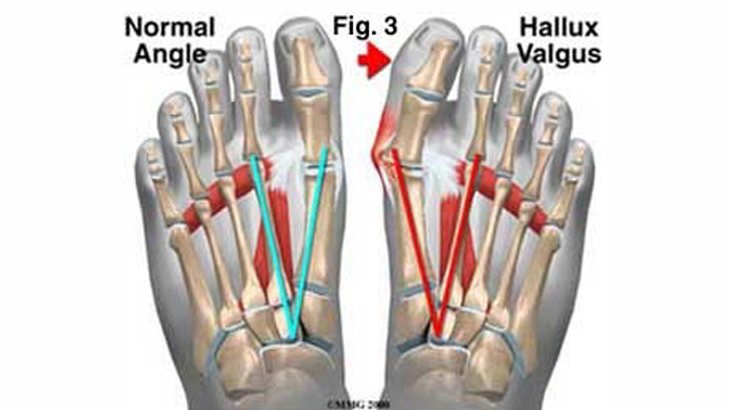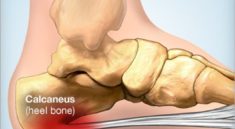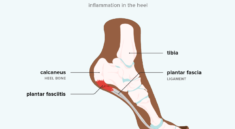A bunion is a bump that grows near your big toe, forcing it to angle inwards. As a result, the joint connecting your big toe to the rest of your foot swells, causing irritation and pain, and making it difficult to walk.
A bunionectomy is a surgical procedure that moves toes back into the correct position. The procedure balances the muscles around the toe joint to make sure that the bunion does not grow back.
In some cases, surgery may only be required to remove the bunion. This operation is performed through a small incision on the side of the foot immediately over the area of the bunion. Once the skin is opened, the bump is removed using a special surgical saw or chisel. The bone is smoothed and the skin incision is closed with small stitches.
Why is surgery performed?
At MedStar Orthopaedic Institute, a bunionectomy is usually recommended if you:
- Are suffering from extreme discomfort or pain
- Have experienced difficulty walking or standing as a result of a bunion
- Have tried conservative treatments without success
Bunionectomy – our comprehensive approach
We have the most experienced orthopedic foot and ankle surgeons, the most advanced treatment options, as well as a comprehensive array of additional services.
Every orthopedic foot and ankle specialist on our team has fellowship training in foot and ankle surgery and focuses exclusively on caring for conditions that affect the lower extremities such as bunions. We perform 1,500 foot and ankle surgeries every year, including many bunionectomies. We also perform many revision surgeries for people who had an unsuccessful bunionectomy elsewhere and want to improve their results.
The basic surgical procedure for bunions (hallux valgus) can include removing the bunion, re-aligning the bones that make up the big toe, or balancing the muscles around the joint so the deformity does not return.
Osteotomy
The bone is cut and repositioned with an osteotomy. The two basic techniques used are distal osteotomy and proximal osteotomy. A distal osteotomy is performed by cutting and moving the bone sideways and usually requires one or two small incisions in the foot. Metal pins hold the bone in place and are removed 6 weeks following surgery. A proximal bunionectomy, the first metatarsal is cut at the near end of the bone. This procedure usually requires two or three small incisions in the foot. The bone is realigned and held in place with metal pins until it heals.
Capsulotomy
Realignment of the big toe is completed by releasing the tendons on either side of the first joint. By releasing the tendon, the toe is no longer pulled out of alignment. The toe is realigned and the joint capsule on the side of the big toe closest to the other toe is tightened to keep the toe straight, or balanced.
In addition, we provide for all of your treatment and recovery needs with services that include:
- Radiology
- Diagnostics
- Pedorthic and shoe consultants, if you need special orthotics, inserts, or shoes
- Durable medical goods, including braces, crutches, and other equipment you may need during recovery
- Physical therapy
Our staff works with you to coordinate all aspects of your care so you don’t have to spend time managing it yourself.
Bunionectomy recovery
During the first few days following surgery, we will focus on helping you keep your swelling down and minimize your pain. We will offer you a variety of pain medications, as well as antibiotics to promote healing during your initial recovery period. You will also need to keep your foot elevated and avoid walking on it during this time. After a few weeks, you can begin bearing more weight on the affected foot, and we may also recommend physical therapy to help you regain your strength. Your orthopedic foot and ankle surgeon will discuss the specific details of your recovery with you before your procedure.
What are the benefits?
Our goal is for you to experience the following benefits after having bunion surgery:
- Corrected deformity
- Low chance of deformity returning
- Foot pain relief
- Pressure relief
- Toe alignment
- Ability to wear normal shoes after recovery
- Ability to return to normal activities without pain
- Improved balance and foot strength




